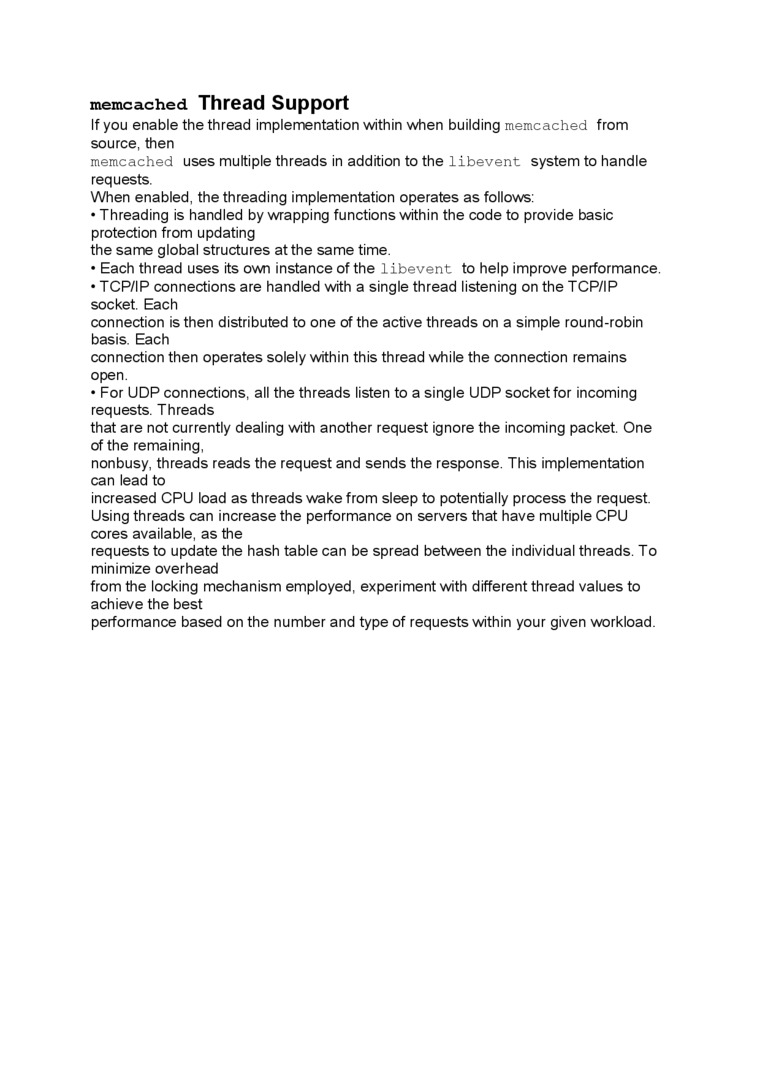89392

memcached Thread Support
lf you enable the thread implementation within when building memcached from source, then
memcached uses mułtiple threads in addition to the libevent system to handle requests.
When enabled, the threading implementation operates as follows:
• Threading is handled by wrapping functions within the codę to provide basie protection from updating
the same global structures atthe same time.
• Each thread uses its own instance of the libevent to help improve performance.
• TCP/IP connections are handled with a single thread listening on the TCP/IP socket. Each
connection is then distributed to one of the active threads on a simple round-robin basis. Each
connection then operates solely within this thread while the connection remains open.
• For UDP connections, all the threads listen to a single UDP socket for incoming requests. Threads
that are not currently dealing with another request ignore the incoming packet. One of the remaining,
nonbusy, threads reads the request and sends the response. This implementation can lead to
inereased CPU load as threads wake from sleep to potentially process the request. Using threads can inerease the performance on servers that have mułtiple CPU cores available, as the
requests to update the hash table can be spread between the individual threads. To minimize overhead
from the locking mechanism employed, experiment with different thread values to achieve the best
performance based on the number and type of requests within your given workload.
Wyszukiwarka
Podobne podstrony:
screenshot 2 Howdy. admin ^ 1 + New Church Admin Contact Form (1 Today)Contact For
Creating an Option File lf you need to specify startup options when you run the server, you can indi
Support for companies and the public sector V? Within the support for companies and the public secto
memcached Logs If you enable verbose modę, using the -v, -w, or -vvv options, then the information o
portfolio settings video Yideo Settings These settings enable you to add video to your portfolio. Yo
Installing MySQL from Source Building MySQL from the source codę enables you to customize build para
image002 (148) *lf you read one book this year, make it THE ASSASS1NS GALLERY. Mesmerizing plotting
blog settings video Yideo Settings These settings enable you to add video to your post. You have the
f14 11 MFC AppWizard - Step 2 of 6EJ What database support would you like to include? <• fignĄ Hę
f26 2 OLE ControlWizard - Step 1 of 2 □ How many Controls would you like your project to have? Would
img044 (59) FOUR SIMPLE HANDKERCHIEF EDGINGSEDGING B_ This is a very simple little edging which, if
Now in paperback!The voice of the futurę irwites you to the new millennium...WILLIAMGIBSON Ali Tomor
więcej podobnych podstron